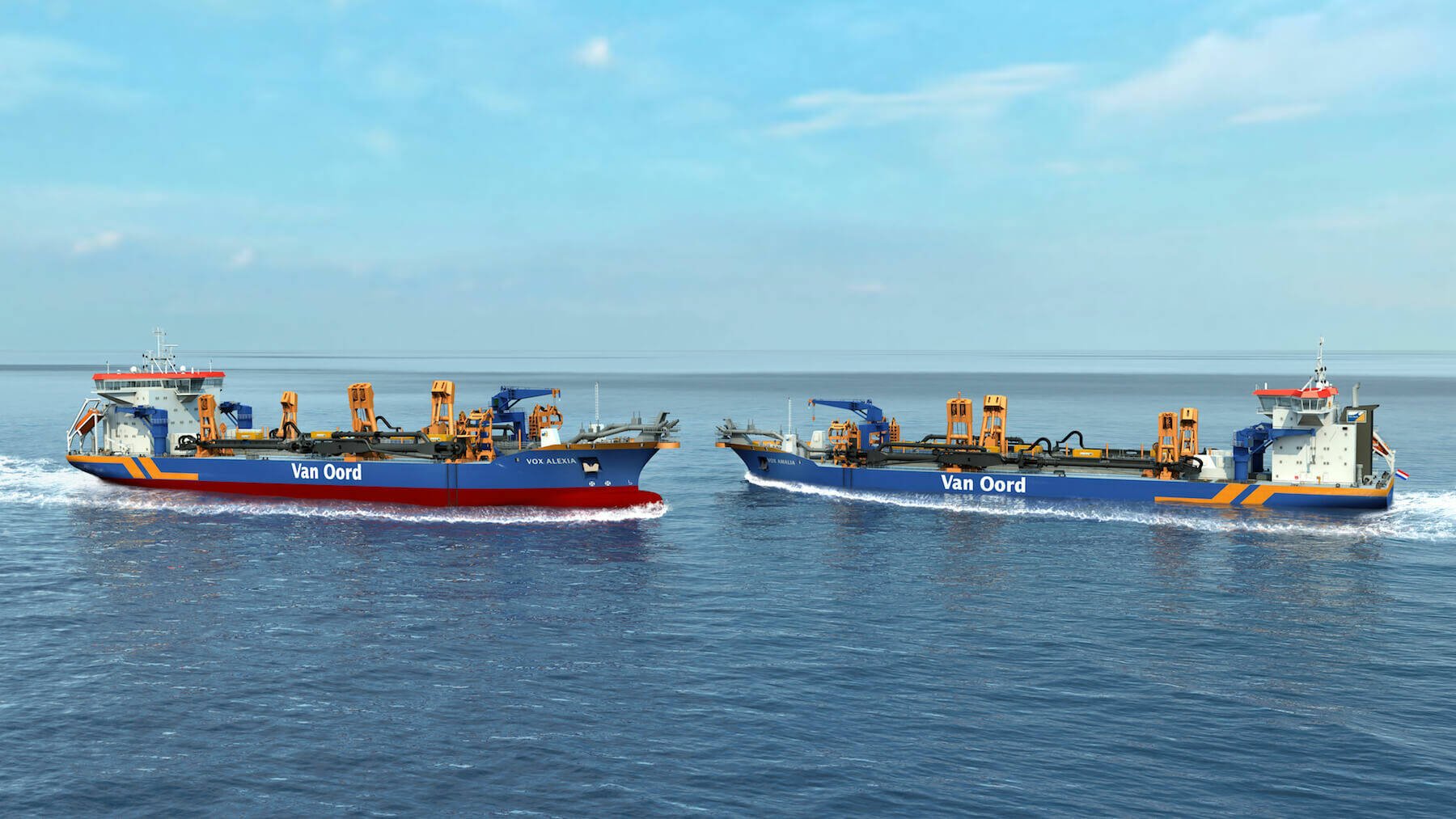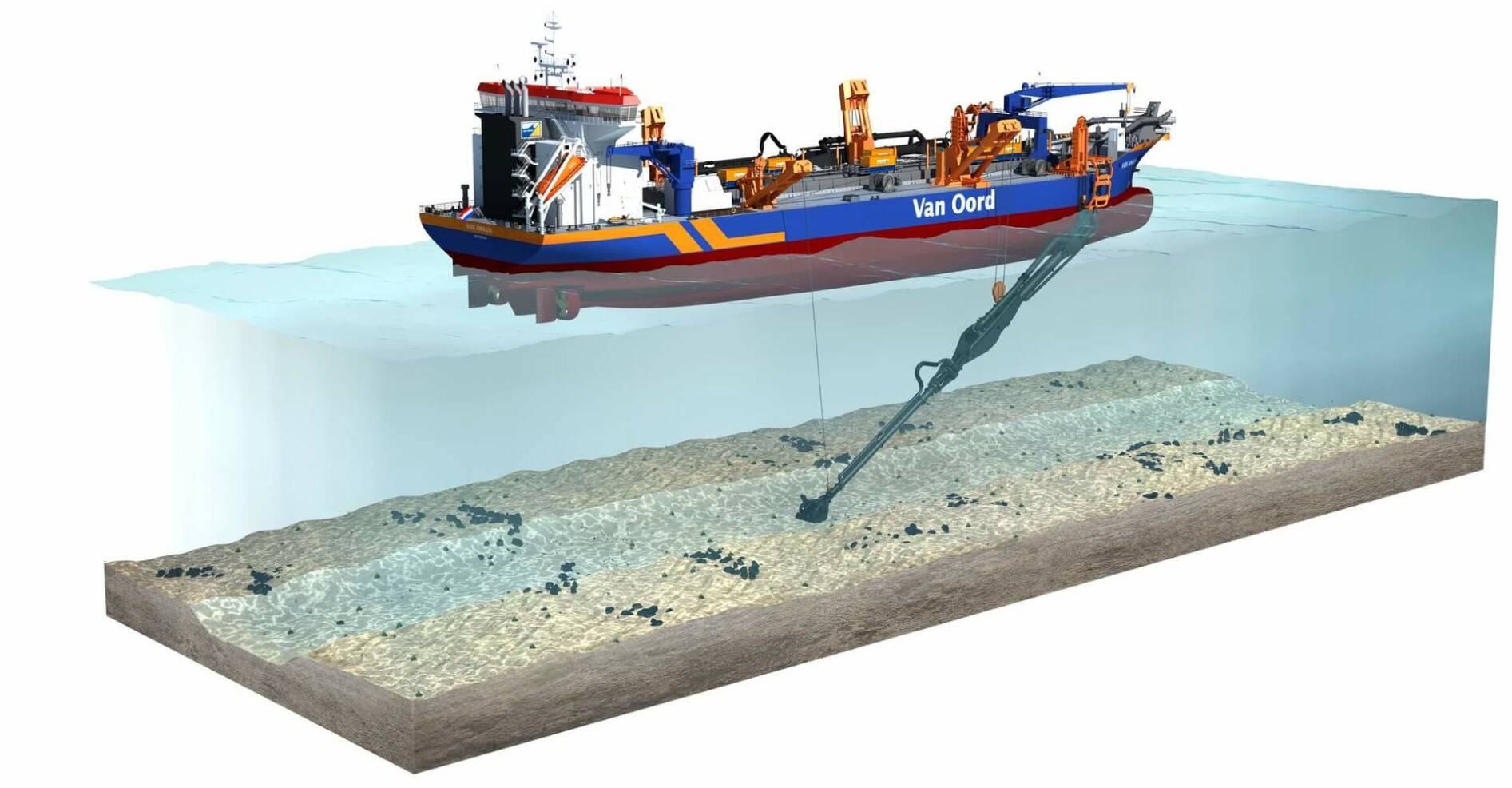

mindset evolves vessels
Marine traffic has a serious environmental impact, and dredging vessels are no exception. To minimise the potential negative impact, Van Oord focusses on energy efficiency while upgrading existing equipment and designing completely new vessels, such as the Vox Amalia and Vox Alexia. By adding more value to the Van Oord fleet, even greater ambitions – related to sustainability – are being realised.
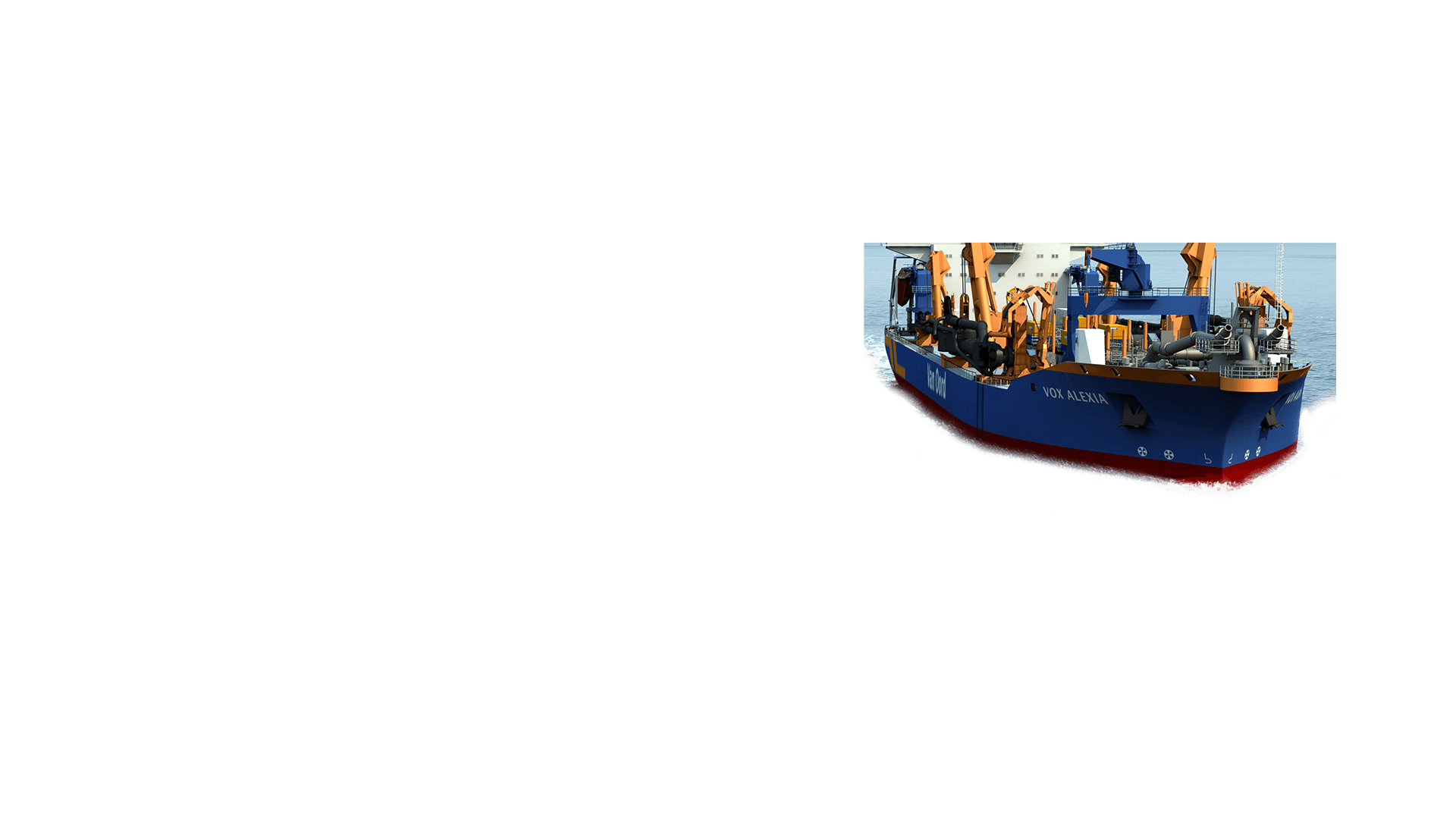

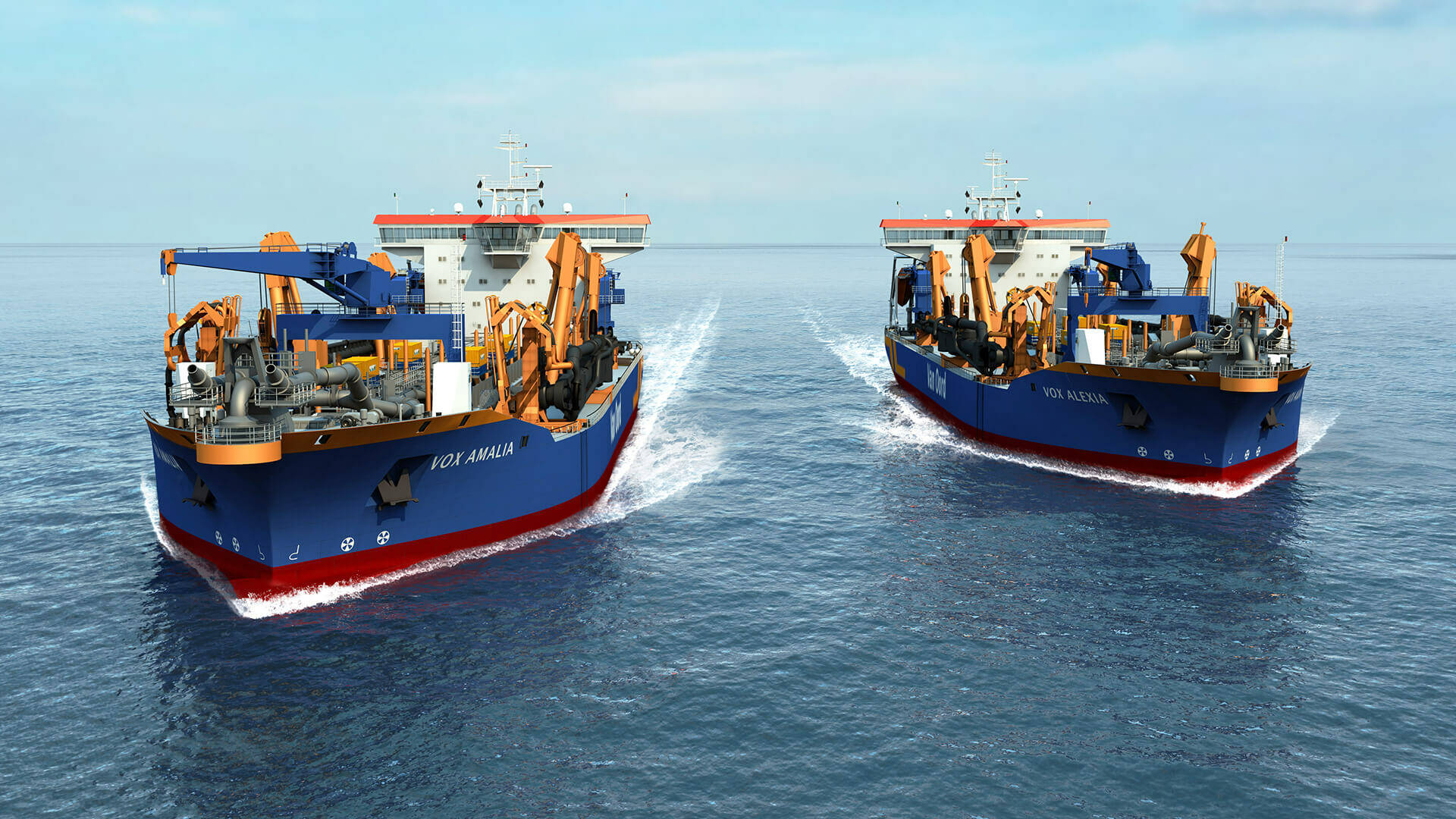
Under construction
While LaNaval focusses on the construction of the vessels, Van Oord contributes by supplying parts for the dredging system, such as the suction pipes, bottom doors, and dredge pumps. ‘Construction works actually started in April 2016,’ says Gerard, who is regularly in Spain to supervise the construction works. ‘By the end of 2016, LaNaval had placed the majority of the steel block sections of the Vox Amalia on the slipway up to
New generation
The order is in line with Van Oord’s innovative investment programme. ‘These new vessels contribute to the further modernisation of Van Oord’s fleet and mark the start of a new generation of trailing suction hopper dredgers,’ explains Gerard Alkema, Van Oord’s Project Manager Plant Design & Construction. ‘The dredgers will have a total installed power of 23,680 kilowatts and will be equipped with two suction pipes with submerged e-driven dredge pumps, two shore discharge dredge pumps, and six bottom doors. With a length of 158 metres and a width of 36 metres, both vessels can accommodate 38 persons.’
After determining the design of the vessels, Van Oord organised a tender for yards in the Far East and Europe, with LaNaval among them. Since 2002, this Spanish yard has delivered seven trailing suction hopper dredgers, including the two largest on the market. Nowadays it is one of the largest shipbuilders in Europe. For the first time in history, LaNaval turned out to be Van Oord’s preferred partner.

the main deck and several key components had been installed, such as the main engines, generators, dredge pumps, jet pumps, overflows, and bottom doors. The shipbuilders will handle the installation of the accommodation block, gantries and suction pipes, in that order.’ In the second half of 2017, Vox Amalia will be operational, followed by Vox Alexia in the first half of 2018.

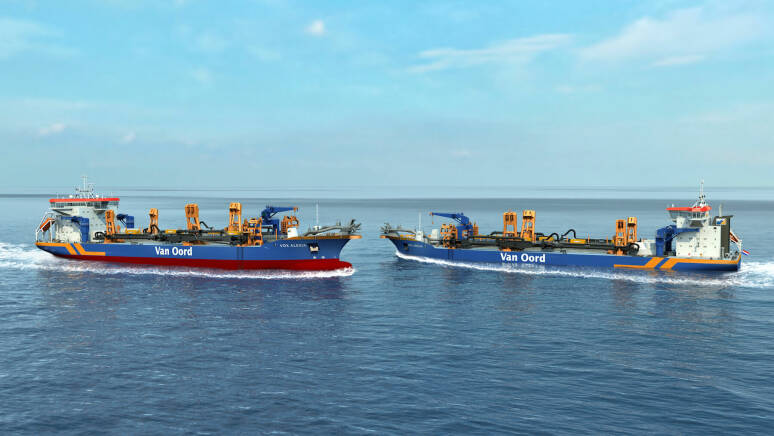
Basjan adds: ‘The propulsion engines and propellers will also have the option of running at variable RPM and will therefore consume less fuel when sailing at lower speeds.’ In addition, the vessels will be equipped with various sensors, monitoring the energy consumption of almost all of the equipment and systems on board, creating awareness and adaptability
Same production, less impact
Jaap: ‘By optimising the shape of the hull, the vessels will have lower hull resistance, reducing the need for propulsion power without compromising sailing speed. Yet, these vessels will be equipped with three engines rather than the two on board similar vessels. This will make it easier to match the supply and demand for energy during the various operation modes of these vessels.’
among crew members. ‘All of these smart characteristics and features will make it possible to use less fuel, and consequently to reduce the CO₂ emissions, without comprising dredging production,’ concludes Jaap.
design phase, special attention was paid to the energy efficiency of the vessels. The final design includes several aspects which have resulted in substantial reductions in fuel consumption and, consequently, a fall in CO₂ emissions.’ The vessels will be issued a Green Passport and Clean Ship Notation.
Evolutionary design
In close cooperation with C-Job Naval Architects, Van Oord designed the vessels in-house. Jaap: ‘We believe that working together with independent engineers leads to advanced designs and high-quality engineering solutions.’ Basjan Faber, Director at C-Job Naval Architects, endorses this statement: ‘During the
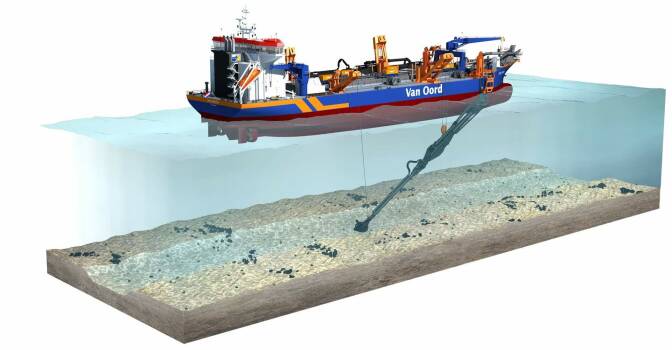
At the LaNaval shipyard in Bilbao, Spain, two new trailing suction hopper dredgers are taking shape. Jaap Bakker, Manager Plant Design & Construction at Van Oord, is responsible for the design and construction of these two sister vessels. ‘With a hopper volume of approximately 18,000 cubic metres, this promising duo – named after two of the daughters of King Willem-Alexander and Queen Máxima of the Netherlands: Princess Amalia and Pricess Alexia – will strengthen the mid-class section of Van Oord’s hopper fleet.’ He continues: ‘The vessels are characterised by a large deadweight in combination with a shallow draft, which makes them very competitive in various markets.’


‘In 2010, Van Oord started with an energy efficiency campaign,’ says Jaap de Jong, Staff Director Ship Management Department at Van Oord. ‘We set ourselves the goal of improving the energy efficiency of our fleet by a minimum of 5% in 2015, but we exceeded this target by achieving a nearly 6% improvement. Combining Van Oord’s investment programme – consisting of new vessels, vessel overhauls, and divestments – contributed to this success.’
Lessons learned
Jaap concludes: ‘The lessons that we all learn along the way are shared with each other and even more importantly: some of these lessons are being incorporated into the new vessels currently under construction.’ In addition to Vox Amalia and Vox Alexia, Van Oord is awaiting a new subsea rock installation vessel named Bravenes, which will be operational in 2018.
which is also equipped with the latest technologies, enabling our crew members to tackle the real work.’
New horizons
To build further on this success, new goals have been set. ‘By 2020, Van Oord wants to have achieved an energy efficiency improvement of 7%. To do so, we will increasingly focus on the awareness and adaptability of our professionals. By equipping vessels with monitoring systems, additional sensors, and several kinds of overviews – for example related to electricity use and power versus speed curves – our crew members will gain insight into energy consumption and how they can reduce it. The first encounter often takes place in our in-house simulator training centre,
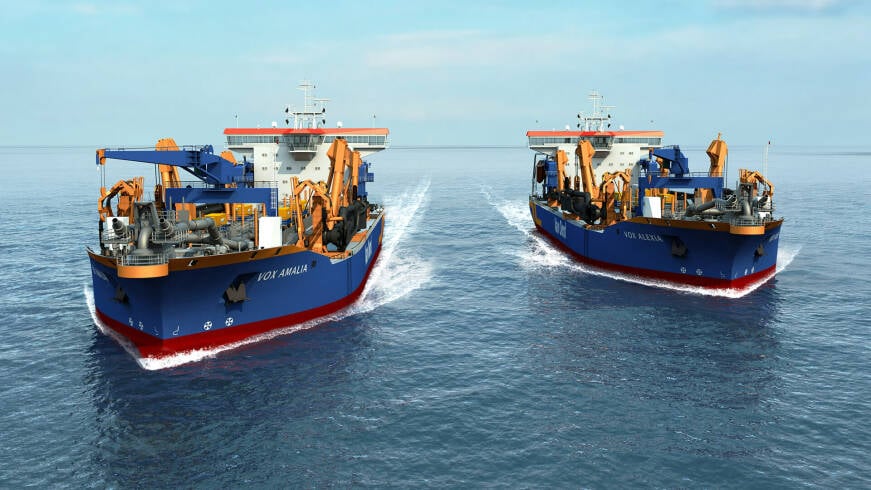
mindset evolves vessels
Marine traffic has a serious environmental impact, and dredging vessels are no exception. To minimise the potential negative impact, Van Oord focusses on energy efficiency while upgrading existing equipment and designing completely new vessels, such as the Vox Amalia and Vox Alexia. By adding more value to the Van Oord fleet, even greater ambitions – related to sustainability – are being realised.






